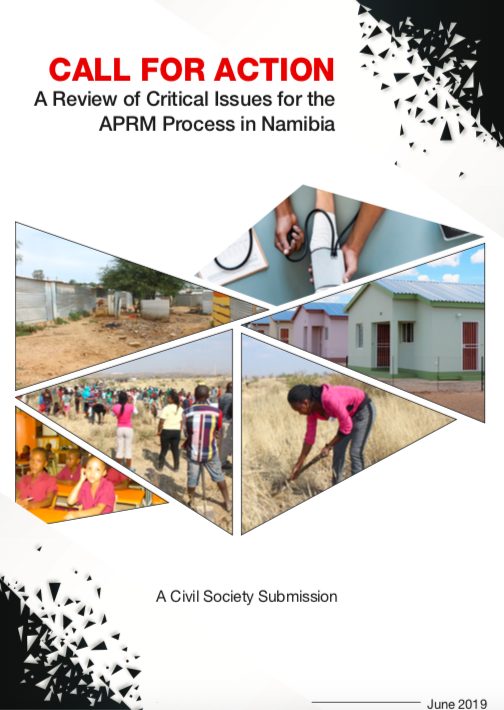The APRM Process in Namibia – A Call For Action

In January 2017, Namibia became the 36th African Union (AU) member state to voluntarily accede to the African Peer Review Mechanism (APRM). The APRM’s rules require that civil society is meaningfully involved in each country’s review process. Together with government and the private sector, the country’s civil society sought to diagnose governance strengths and weaknesses, […]
Peer Review Progress Taking Shape
Just over a year after Namibia officially joined the African Peer Review Mechanism (APRM) dozens of civil society organisations and stakeholders met for two days in Windhoek last week to help navigate Namibia’s role as a member of the APRM.
The two day training workshop was facilitated and organised by the South African Institute of International Affairs (SAIIA), the Institute for Public Policy Research (IPPR) and the Friedrich Ebert Stiftung (FES).
What does the APRM mean for Namibia?

*This post is adapted from the briefing paper “Namibia and the African Peer Review Mechanism: Committing to Improved Governance” by Steven Gruzd. On Saturday 28 January 2017 in Addis Ababa, Ethiopia, President Hage Geingob signed a Memorandum of Understanding with the African Peer Review Mechanism (APRM), committing Namibia to Africa’s premier governance assessment and promotion […]
Namibia and the African Peer Review Mechanism

Namibia recently joined the African Peer Review Mechanism, a process by which African countries agree to be evaluated by their neighbours with the goal of improving governance on the continent. In the words of the paper, This short guide is aimed at Namibian civil society, parliament and policymakers, to explain how the APRM arose and […]

